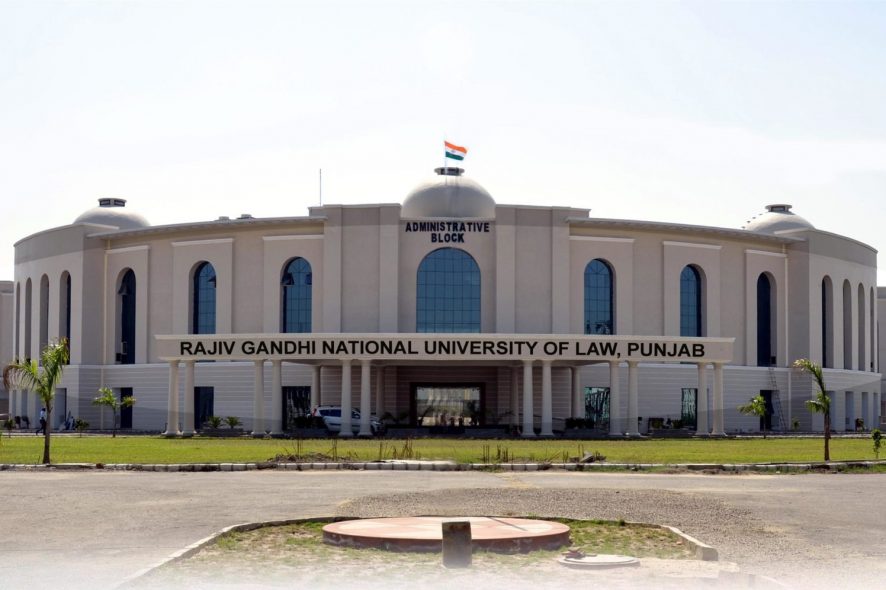About the Institute
Rajiv Gandhi National University of Law (RGNUL), Punjab, was established by the State Legislature of Punjab by passing the Rajiv Gandhi National University of Law, Punjab Act, 2006 (Punjab Act No. 12 of 2006). The Act incorporated a University of Law of national stature in Punjab, thereby fulfilling the need for a Centre of Excellence in legal education in the modern era of globalization and liberalization.
About the Blog
The RGNUL International Humanitarian Law and Conflict Studies Blog (RIHLCS) has been established in 2020 and is under the aegis of the RGNUL Centre for Advanced Study in International Humanitarian Law (CASH).
About the Centre
Centre for Advanced Study in International Humanitarian Law (CASH) is an esteemed research Centre of Rajiv Gandhi National University of Law, which is dedicated to research in the field of International Humanitarian Law (IHL). It aims to ensure that future leaders and opinion-makers understand the practical relevance of the subject of IHL and have a thorough knowledge of its basic principles.
Theme
The theme for this series is “Climate Change and Armed Conflict”.
About the Theme
The threat of Climate Change is no longer a distant dystopia, but an everyday reality that affects millions worldwide, and generates humanitarian consequences that necessitate immediate action. The present theme seeks to explore this link between the twin threats posed by climate change and conflict and this will be done through two questions: Firstly, how does climate change lead to or cause conflict and Secondly, how does climate change exacerbate already existing humanitarian crises. The theme is crucial in the contemporary moment as long term, sustainable peace requires climate mitigation and adaptation measures by the international community and such measures must be in accordance with IHL.
Sub-themes
- Double Vulnerability: Violence and Climate Extremes
- Climate Induced Migrations and Displacements
- Environment and Warfare
- Humanitarian Organizations and Climate Action
- The Natural Environment: A Casualty of Conflict
The sub-themes are only illustrative and submissions are not restricted to the aforementioned sub-themes, provided they fall within the ambit of the main theme.
Eligibility
Practitioners, academicians, students of law, or anyone who wishes to express an opinion on the provided IHL theme can submit their manuscripts.
Submission Guidelines
- The subject and theme of the blog should pertain to the theme or sub-themes provided. RIHLCS expects the submissions to be of interpretive, exploratory, and non-descriptive style.
- All submissions must be in Times New Roman, Font size 12, Spacing 1.5, Justified. The word limit should range between 800-1500 words.
- A maximum of two-level headings is allowed.
- References should be incorporated in the body of the article itself through hyperlinks. No endnotes or footnotes shall be used.
- Co-authorship of a maximum of 2 is permitted.
- RIHLCS follows a strict no-plagiarism policy. Articles with more than 10 per cent plagiarized content shall be summarily rejected. The author(s) bear sole responsibility for the accuracy of facts, opinions, or views stated in the submitted Manuscript.
- The manuscripts must be e-mailed to rgnulcash@gmail.com. All entries should be submitted in .doc or .docx format and the file must be titled “CASH Write Up”. The subject of the e-mail should be titled “Submission for CASH Blog- NAME OF THE AUTHOR”.
- The body of the mail should include the author’s name, year of study, institute, contact information and link to their LinkedIn profile, if any. It should also specify a short brief about the blog article in not more than 2 to 3 sentences.
- The Editorial Board may take up to 15 days for the review of submissions.
- The Editorial Board reserves the right to summarily reject any topic that has already been covered on our blog. The Editorial Board also has full discretion to reject articles at any stage.
- Cross-publications are not allowed.
- Copyright of all published blog posts shall remain with the Centre. All Moral Rights shall vest with the author(s).
- While submitting the blog, the author shall mention a declaration in the mail as follows: “If selected for publication, the author gives the copyright of the work to the Centre. The author also declares that this is the original and unpublished work of the author(s)”.
- In relation to any dispute, the decision of the Editorial Board shall be final and binding.
Deadline
All articles are to be submitted by 5 March 2021, 11:59 PM IST.
For queries, contact: rgnulcash[at]gmail[dot]com
Click here for the official website.







